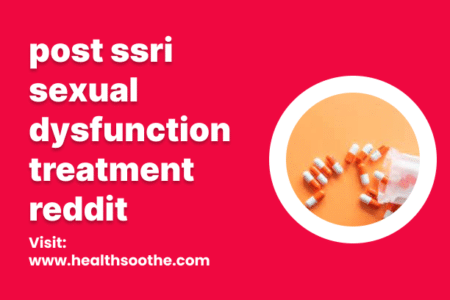Unlike during ancient times, when people ate natural food and moved more, now processed food and a sedentary lifestyle are more convenient. An unhealthy lifestyle is, therefore, becoming a norm. Few people eat enough fiber, for instance, or drink enough water, which results in serious chronic diseases such as gastritis, ulcer, obesity, heart problems, cancer, and even depression. Very few people, due to sedentary work, do sports or even walk enough miles, which is, unfortunately, very dangerous. According to Medscape, “Even with moderate weekly activity, sitting for 5-6 hours a day watching TV increases mortality rate by 50%.”
However, it’s not impossible to start living healthier; all you need is dedication and willpower. The uncertainty about what adjustments to make to stay healthy can be a real hurdle, especially with the contradictions coming from some health experts. Nevertheless, here are ten scientifically proven tips to stay healthy.
Evidence facts of the list:
- Eat a balanced, whole-foods diet
- Stay physically active (150+ minutes per week)
- Get quality sleep (7–9 hours per night)
- Manage stress effectively
- Drink enough water (6–8 glasses per day)
- Limit added sugar and ultra-processed foods
- Avoid smoking and excessive alcohol use
- Stay up to date with screenings and vaccinations
- Maintain a healthy weight
- Build strong social connections
Cut Down on Sugar
Sugar is not that bad if ingested in small amounts. However, too much sugar leads to type 2 diabetes, weight gain, poor dental health, and acne. It also reduces one’s immunity and could lead to other serious medical conditions. By reducing the amount of sugar in every meal, it becomes easier to stop craving it.
Sometimes it is hard to reduce sugar consumption because of strong cravings. You can swap out junk food with healthier, naturally sweet foods such as yogurt, sparkling water, and fruits. Snack bars made of whole foods can also be perfect for a healthy sweet treat.
Watch Your Weight
Watching your weight does not necessarily mean losing weight. Everyone must watch their weight, whether under, overweight or within the normal range. Weight is critical in determining one’s general body health. When it is not right, our immunity decreases, putting us at risk of contracting terminal diseases such as cancer and cardiovascular diseases. To keep track of your weight, take measurements regularly and monitor the amount of calories consumed. If need be, consult a medical practitioner.
Eat Healthy
Proper eating should not be as complicated as some online gurus make it. It just means choosing from various essential foods that include proteins, minerals, carbohydrates, vitamins, and healthy fats. Additionally, canned and processed foods cannot compare to fresh products. A good balance in your diet easily helps control weight. It also contributes to healthy, moist skin, strong hair, and a better physical appearance. A balanced diet is especially crucial for the growth and development of children, as they need energy for their active bodies.
Get Enough Sleep
Sleeping is as important as eating good food and exercising. The recommended sleep hours are different and depend on the age group. Newborns need about 17 hours, children aged 6-15 need about 12 hours, meanwhile adults should get about 7-9 hours of sleep daily. Sleeping less than 7 hours a night can cause serious health complications. Experts note that sleep is directly related to memory, performance, and cognition. So the next time someone tells you that they sleep a few hours per night and feel good, don’t fall for this; it takes months and even years to see the consequences in the form of dark circles under the eyes, obesity, high blood pressure, or even stroke.
Work Out Regularly
Health experts suggest that physical activities improve general health, manage weight, boost immunity, and strengthen bones. Exercises help distribute oxygen to tissues, hence improving our cardiovascular health. Regular exercise also boosts energy levels, keeping us in a good mood. Exercising doesn’t necessarily mean going to the gym—being flexible by doing some home workouts, taking a walk, or skipping rope also counts. However, not everyone finds it easy to stay active. If this is you, find someone or something that will motivate you. It can be anything: social media where you see other people working out, getting in better shape, or meeting new people. The latter, however, needs to be treated with caution, especially if you go for a run with a person you barely know. In this case, learning more about your workout buddy is a must.
Reduce the Intake of Unhealthy Fats
Fats contain twice as many calories per gram compared to carbohydrates or proteins. Foods rich in fats have lower vitamins and minerals. Too much fat intake leads to a rapid increase in weight to alarming levels. Decreasing it leads to a lower serum cholesterol concentration. Too much fat also increases the risk of cardiovascular illnesses. Instead, choose low-fat meals such as skimmed or lean meat and lots of vegetables.
Ditch Bad Habits
Smoking is infamous for being the root cause of illnesses like cancer, diabetes, and cardiovascular diseases. Drinking a little wine, in turn, won’t hurt, as it lowers blood pressure, which reduces the risk of heart attacks and stroke. When it comes to smoking and alcohol, ditching is better than anything. If it’s impossible, try to at least smoke and drink less.
Drinking and smoking, however, are not the main bad habits that most people have. Not getting enough sleep, multitasking, staying up late, cooking everything in olive oil, and drinking coffee are also not innocent habits. Let’s take, for instance, cooking in olive oil. If heated beyond its smoke point, it gives off toxic smoke, which is dangerous for our health.
Have Regular Medical Checkups
Medical checkups are an important part of detecting the early signs of an illness. While most diseases can be treated thanks to advancements in technology, the success of the medical intervention depends on early detection. Consider cancer, for example; there’s high advocacy for regular screening to help detect and mitigate the early effects.
Nevertheless, the gap between medical checkups varies from patient to patient considering age, family medical history, occupation, and lifestyle. Your doctor is the only person who can advise you on how to shape your lifestyle for the better.
Stay Hydrated
Drinking water regularly has countless benefits. Experts recommend drinking up to 11 cups of water daily to stay hydrated. If you don’t like drinking plain water, replace it with fruits, healthy squeezed juices, soups, or smoothies. Subsequently, proper hydration regulates body temperature, lubricates joints, moisturizes the skin, and keeps the body functions going, ultimately improving general health. It also prevents constipation and headaches.
Stay in a Clean Environment
A clean environment enables the survival of many organisms on the planet. Keeping our environment clean reduces pollution, prevents the spread of viruses, and improves comfort in our living spaces. Consequently, cleanliness creates a healthy environment, which results in good mental and physical health.
Conclusion
An apple a day does indeed keep the doctor away. And even though taking healthy choices is not always easy, understand that you’re doing this for yourself, your children, and people who love you. Your loved ones want to see you happy and thriving, which is impossible without self-care.
Following a healthy lifestyle may seem hard initially, but it gets easier with time. Any effort made towards healthy living is a step in the right direction. Give your body what it needs, and it will thank you back.
Sources and References
- World Health Organization — Healthy Diet Fact Sheet
https://www.who.int/news-room/fact-sheets/detail/healthy-diet - Harvard T.H. Chan School of Public Health — Healthy Eating Plate
https://www.hsph.harvard.edu/nutritionsource/healthy-eating-plate/ - Centers for Disease Control and Prevention (CDC) — Physical Activity Guidelines for Adults
https://www.cdc.gov/physicalactivity/basics/adults/index.htm - NHS — Exercise: Live Well
https://www.nhs.uk/live-well/exercise/ - Sleep Foundation — How Sleep Works
https://www.sleepfoundation.org/how-sleep-works - National Institutes of Health (NIH) — Health Effects of Sleep Deprivation (PMC article)
https://www.ncbi.nlm.nih.gov/pmc/articles/PMC2656292/ - American Psychological Association — Stress Topics & Resources
https://www.apa.org/topics/stress - Mayo Clinic — Stress Management
https://www.mayoclinic.org/healthy-lifestyle/stress-management - NHS — Water, Drinks and Your Health
https://www.nhs.uk/live-well/eat-well/water-drinks-nutrition/ - The BMJ — Sugary Drinks and Obesity (BMJ 2019)
https://www.bmj.com/content/365/bmj.l1949 - NHS — Alcohol Support
- Centers for Disease Control and Prevention — Preventive Health Care
- NHS — Vaccinations and Immunisations
- World Health Organization — Obesity and Overweight Fact Sheet
https://www.who.int/news-room/fact-sheets/detail/obesity-and-overweight - Harvard Gazette — Harvard Study of Adult Development (Social Connections)
https://news.harvard.edu/gazette/story/2017/04/over-nearly-80-years-harvard-study-has-been-showing-how-to-live-a-healthy-and-happy-life/ - National Institutes of Health (NIH) — Social Relationships and Health (PMC article)
https://www.ncbi.nlm.nih.gov/pmc/articles/PMC3150158/





